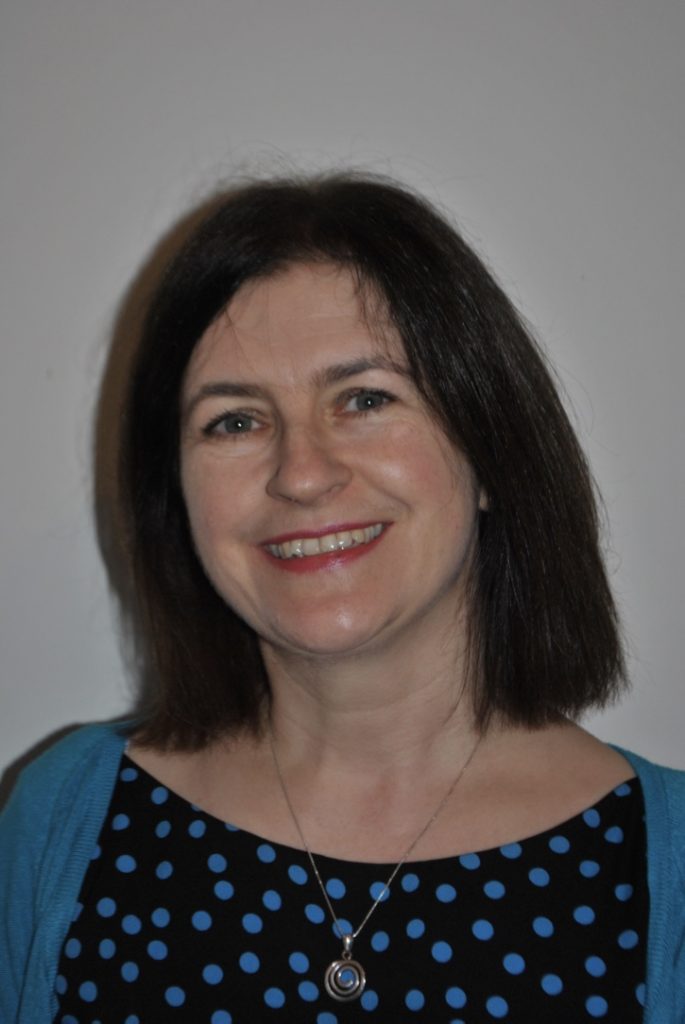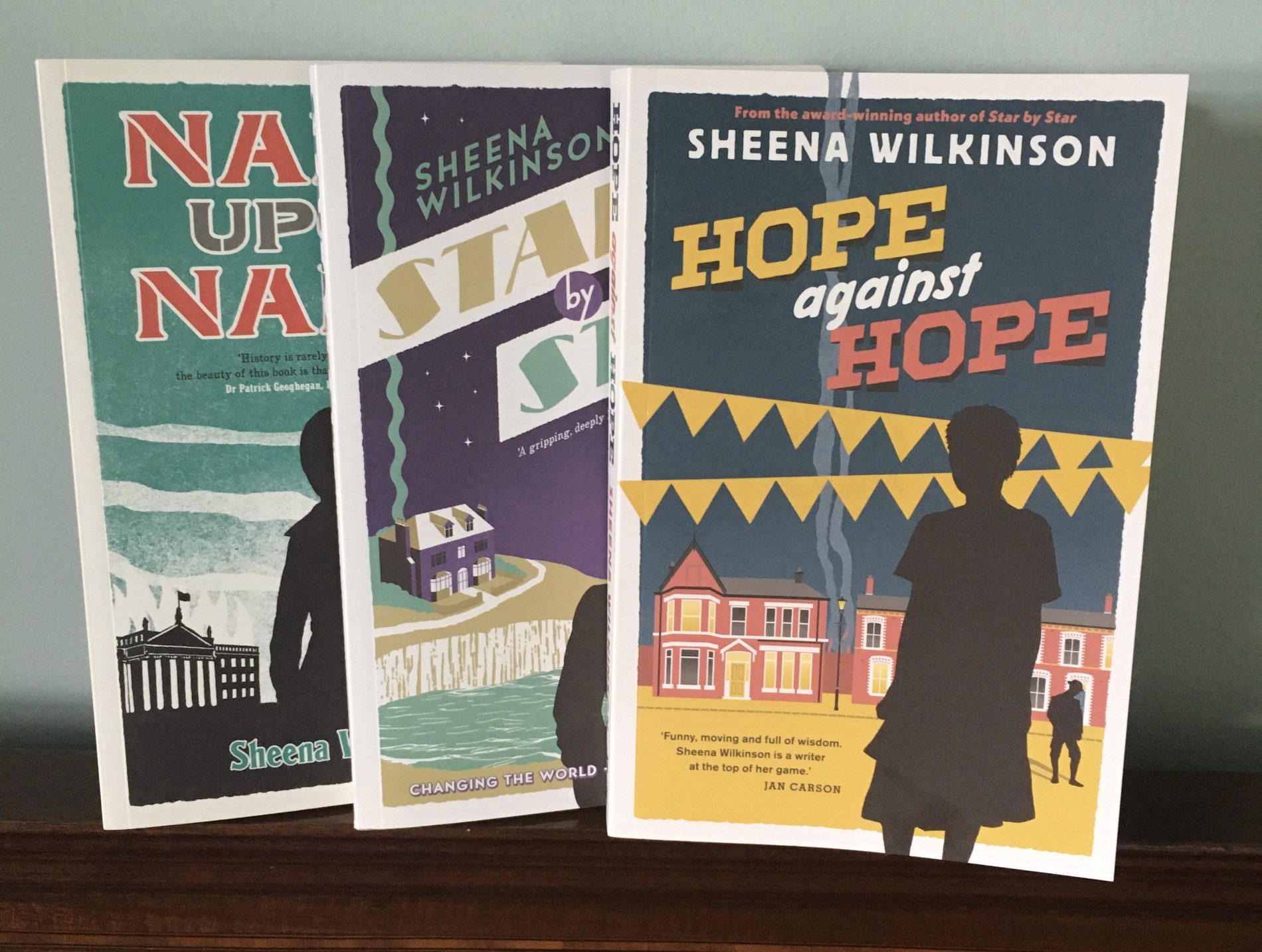‘Hope against Hope’ a Historical Novel by Sheena Wilkinson
Trasna is pleased to present a work of historical fiction, ‘Hope against Hope’ by Sheena Wilkinson. This is the third outstanding work of historical fiction by the multi-award-winning Sheena Wilkinson. It follows the fantastically successful ‘Star by Star’, which won the Children’s Books Ireland Honour Award for Fiction in 2018 and was shortlisted for the Irish Book Awards. Star was selected as a “future classic” by BookTrust and has so far sold around 25,000 copies – Little Island’s bestselling book ever!
Hope against Hope is set in 1921. Ireland has been at war for two years. Communities are torn apart by bitter hatred – and now a hard border splits the island. In Belfast, Helen’s Hope hostel is a progressive space where young women live and work together – a haven of tolerance and diversity in a fractured city. But some people hate Helen’s Hope and its values, and will stop at nothing to express that hate…
Presented here is Chapter 8

The photograph, taken in 1912, is of the author’s grandmother, and great aunt, Frances and Annie Duff. The sisters lived around the corner from where the book is set.
Chapter 8
Next morning was all bustle: girls racing off to factories and mills, girls grumbling their way to offices and shops. I felt shy and lost in the dining room, surrounded by all the chatter. Cassie stood up after breakfast to wish everyone a good day, and to warn them to be careful.
‘You know how troubled the streets are at the moment,’ she said. ‘And some of you may know how close that came yesterday when our own dear Stella was hurt in a … an incident.’ There was a buzz of concern and excitement. ‘She’ll be fine,’ she said, ‘but she’s to stay quietly in bed. She won’t be in her office for a few days, nor able to help with classes until further notice’ — a few girls perked up — ‘but you’ll be pleased to know that you won’t miss out. Edith will hear your reading and Miss Scott will help with mathematics. So nobody need lose out.’ They drooped. ‘Sewing girls — Brigid tells me you did sterling work last week to get the banner finished. Well done.’
‘Polly,’ she said, as she passed me on her way to the door, ‘you and I need to have a chat. Come with me.’
Cassie’s study was a small, neat room on the first floor. Books lined the walls and the large desk was piled with papers. I sat in the chair she beckoned me to, and waited.
‘Now, Polly,’ she said. ‘You’ve come to us in a very unorthodox way.’
‘I know.’
‘I’ve spoken to your father on the telephone. He was very shocked at your running away. You caused him great worry.’
But he went out and left me! Leo beat me till I fainted and Daddy left me! He can’t have been that worried. The words jabbed at my brain but I just hung my head and looked sorry. I wondered how much she knew.
‘But he is willing for you to stay here for the time being. Until things settle down at home.’ I wondered if this referred to Leo, or to the trouble in Mullankeen, but I didn’t want to ask. ‘I can see that you have been subjected to some violence.’ She did that thing of trying not to look at my face. ‘I appreciate that you must have been driven to desperate measures.’
‘Yes.’ But the sympathy in her voice made me uncomfortable. I didn’t want to be seen as a victim. ‘But I’ve wanted to come for ages. When my brother hit me, it — well, it gave me an excuse, I suppose.’
She looked surprised. ‘I see. And what made you want to come to Helen’s Hope so badly?’
‘It sounded fun,’ I said. ‘Like boarding school.’
Cassie waited, obviously expecting something better, so I rushed on with what I hoped was a more noble motivation. ‘I missed Catherine.’ I didn’t want to tell tales so I didn’t go into detail about Ivy picking on her. ‘I’ve always looked after her.’
‘I see. And what can you contribute to Helen’s Hope? If we let you stay.’
I gulped. ‘Contribute?’
‘Yes, Polly, this is a community. A community which, I don’t mind telling you, exists under some pressure. Especially at the moment. Tensions in the city are high and yesterday — well, you saw how close it got. Some people are very suspicious of us — people who don’t approve of what we stand for — tolerance and acceptance. People who can’t understand women living together without men. I can’t accept any girl who might jeopardise our reputation in the city, such as it is. We want Helen’s Hope to be a safe haven for young women. A beacon of hope in uncertain times. So far all I know of you is that you are — shall we say impetuous? I need to know I can trust you to be steady and reliable.’
She sounded exactly like the headmistresses in the books apart from all the stuff about violence and politics.
‘I’d be good,’ I promised.
‘It’s not just about being good. And it’s certainly not about fun, though obviously we want you to be happy. Every girl contributes something. Those who can pay for their board do so. I understand your father is happy to —’
I blushed. ‘Of course he is,’ I said. ‘I’m not a charity case!’
‘There is no suggestion of charity at Helen’s Hope. Please understand that. No difference is made between the girls who can contribute financially and those who cannot. Can you read and write?’ she went on. ‘Your cousin struggles —’
‘I can read and write the best,’ I said, stung that she might think otherwise. ‘I love reading. And I can clean and scrub and make beds and all the skivvy work. I’ve been keeping house since … for ages.’ I didn’t want to talk about Mammy dying. ‘I could do the housework. I noticed your skirting boards were very dusty. You could do with a better maid.’
‘We have no maid. We all take turns with the housework,’ Cassie said drily. ‘Some girls are more skilled in the housewifely arts than others.’
‘And I can sew. Catherine said you needed more people in the sewing factory?’
‘We did, though things have been very quiet lately. But I daresay we could make use of you. It’s only a cottage industry — we’ve converted the outhouses into the factory — but it pays for itself. Or it’s meant to.’ Her face clouded. ‘It’s not always easy to get orders.’
‘I’m good at sewing.’
‘Well, Brigid can see how you shape up this morning. She’s in charge. But, Polly, you’re very much on trial. If we have any doubts about your influence … We need to be able to trust our girls, more than ever in these times. Can I trust you?’
‘Yes,’ I said. And I really, really meant it.
 Described in The Irish Times as ‘one of our foremost writers for young people’, Sheena Wilkinson has published eight young adult novels, both contemporary and historical. She has won many awards, including the overall Children’s Books Ireland Book of the Year in 2013 for Grounded. She has been nominated three years running for the Astrid Lindgren Memorial Award, the world’s largest children’s literature award, and her most recent novel Hope against Hope was shortlisted for the Irish Book Awards and the KPMG Children’s Books Ireland Awards, as was its predecessor Star by Star. Sheena lives in County Down and when she’s not writing she’s usually walking in the forest or singing, sometimes both at the same time. Hope against Hope can be purchased directly from the publishers, Little Island Books at this link.
Described in The Irish Times as ‘one of our foremost writers for young people’, Sheena Wilkinson has published eight young adult novels, both contemporary and historical. She has won many awards, including the overall Children’s Books Ireland Book of the Year in 2013 for Grounded. She has been nominated three years running for the Astrid Lindgren Memorial Award, the world’s largest children’s literature award, and her most recent novel Hope against Hope was shortlisted for the Irish Book Awards and the KPMG Children’s Books Ireland Awards, as was its predecessor Star by Star. Sheena lives in County Down and when she’s not writing she’s usually walking in the forest or singing, sometimes both at the same time. Hope against Hope can be purchased directly from the publishers, Little Island Books at this link.

Sheena Wilkinson, you’ve got a new ever young adult reader!
I’m hooked! Thanks for the excerpt!!